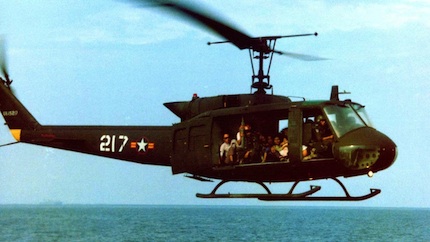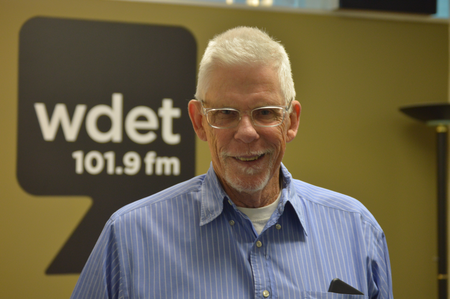50 Years After Kent State, We’re Still Grappling with War, Violence, and Civil Unrest
Two authors and activists reflect on the Kent State tragedy and take stock of lessons learned.

It’s been 50 years to the day since the Ohio National Guard fired 67 rounds upon unarmed college students protesting the war in Vietnam, Laos, and Cambodia. Four died that day at Kent State University. Nine more were injured. It was a watershed moment in the anti-war movement.
“It really brought the war home, seeing college students shot.” — Activist and author Steve Early
It was a sudden and unnecessary tragedy that helped shape the rest of American history. What do the Kent State shootings mean for us as a nation today?
Listen: 50 years after Kent State what have we learned as a country?
Guests:
Steve Early is an attorney, activist and author of a recent piece in Jacobin titled “Fifty Years Ago This Spring, Millions of Students Struck to End the War in Vietnam”. He says Kent State showed how widespread anti-war activity had become in the United States at the time. “It really brought the war home seeing college students shot,” Early says referring to the Kent State shootings. He said the shootings really hit home for similarly situated young people, adding fuel to the fire of an already palpable anti-war movement.
Early says there are lessons to be learned from the anti-war movement and the subsequent tragedy at Kent State. “I think the takeaway today is that we are still spending $750 billion a year on military…we have other economic needs, we really need today a reordering of national priories so that billions of dollars are not spent on war and destruction,” says Early.

Frank Joyce is a Detroit author and activist. He also co-edited, “The People Make the Peace: Lessons from the Vietnam Anti-War Movement” and has authored a piece in Counterpunch titled “Four Dead in Ohio”. Joyce was in Vietnam when he heard about the Kent State shooting. “As it happens, I was in a very small village in northern Vietnam as part of a delegation…one of the things I remember was how concerned and disturbed [our hosts] were,” says Joyce. He says this was indicative of the Vietnamese opposition to the United States government, not the American people.
Joyce says the anti-war movement was an aberration in a “warrior nation” like the United States. He believes, however, if it happened once, a similar movement could happen again. Despite the suffocation of militarization and war propaganda, Joyce says the American people are hungry for peace.
Trusted, accurate, up-to-date
WDET is here to keep you informed on essential information, news and resources related to COVID-19.
This is a stressful, insecure time for many. So it’s more important than ever for you, our listeners and readers, who are able to donate to keep supporting WDET’s mission. Please make a gift today.
